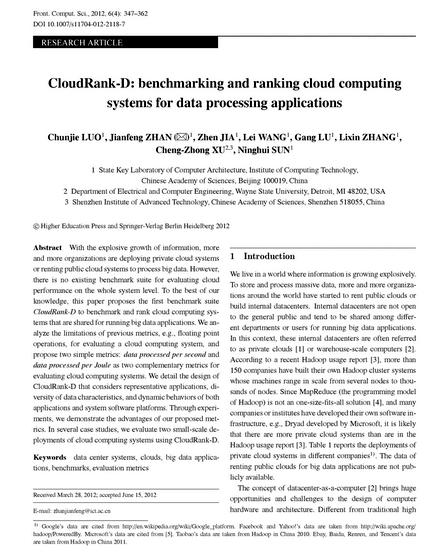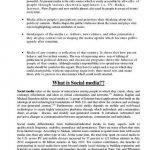This program milestone provides an opportunity for students to synthesize the knowledge gained in previous course work and to demonstrate an ongoing critical review of the literature as they develop their dissertation research proposal. During this process, students engage in independent reading and analysis of the theoretical, empirical, and methods literature, with regular consultation and feedback provided by the student’s supervisor and advisory committee. This milestone should normally be completed in a maximum of two terms of study.
In preparation for beginning proposal development, the student should reflect on the knowledge needed to carry out the dissertation and begin to identify gaps in knowledge that will be addressed in their dissertation, while familiarizing themselves with different approaches for preparing research proposals prior to beginning this course.
- The student should arrange a meeting of their advisory committee to discuss the focus of their dissertation, including research purposes and how these address a gap in the literature, theoretical perspective(s) informing the work, proposed design and method. It is recommended that students provide the committee with a 2 page summary of the proposal prior to this meeting so that constructive, written feedback can be provided about the overall direction.
- The student and committee should reach an agreement about a process for submitting work and receiving feedback. This should include a schedule of meetings for at least the first 3 months of study.
- Within a month of receiving feedback on the 2 page summary, the student should submit a more detailed outline of the proposal organized using headings that reflect key sections of the proposal, i.e. background, purpose, theoretical perspective(s), review of literature, research questions/hypotheses, method (including details on the design/methodology, sampling approach, data collection procedures, including measurement, and plan for data analysis), ethical considerations and dissemination plan. For each section, the outline should include notes about main points, issues, and questions or decisions that need to be addressed. A preliminary reference list should also be included.
- The advisory committee will review the outline and, in consultation with the student, suggest revisions to ensure that the focus and intent are scholarly, comprehensive, and congruent with the goals of the PhD program and the student’s dissertation plans. This outline should be finalized within the first 4-6 weeks of beginning to develop the proposal.
- A timeline for completion of the proposal should be developed early in this process through negotiation between the student and advisory committee. This timeline should be reviewed on an ongoing basis and adjusted as necessary to help direct the student’s work.
- The student should meet with their supervisor/advisory committee as negotiated to discuss progress, share emerging insights, address challenges, and seek clarification and/or direction. Committee members will provide oral and/or written feedback on sections of the proposal, as negotiated with the student, when these sections are ready to be discussed. This process should continue as the student develops the written submission.
- As the proposal takes shape, the student and advisory committee will establish a date for submission of the final proposal.
- The student will submit a hard copy of the full proposal to each committee member and an external reviewer (a nursing faculty member who is not part of the student’s committee) by the due date negotiated. The external reviewer will independently review the proposal and determine the grade (pass/fail) using the criteria described in this outline. The reviewer will communicate his/her assessment to the Chair of the Graduate Programs. If a passing grade is achieved, the student will proceed to the Dissertation Proposal Oral Examination.
- If a failing grade is obtained, feedback will be provided to the student, who will be given an opportunity to revise and resubmit the proposal within a maximum of one term. If a passing grade is not achieved in this time period, the student will be withdrawn from the program.

The final written submission should address all essential components of a sound research proposal, including justification for decisions made, at a level that is consistent with a doctoral dissertation. The level of detail should be such that the study could be undertaken by another investigator who reviews the proposal (assuming that they possess the needed skill to do so).
Tables and figures should be inserted in the text as required. A complete reference list should follow the text. Letters of information, consents forms, data collection tools and any other documents that support the proposal should be included in appendices.
The length of the proposal is expected to vary depending on the research questions, extent of prior work in the field and method. Proposals are typically 30-40 pages of double-spaced text, excluding references, tables, figures and appendices, although this must be negotiated with the advisory committee. APA format should be used.
The proposal will be graded as PASS/FAIL. To achieve a PASS, the following criteria must be met:
Literature reviewed is appropriate to the focus of the study. Critical analysis and synthesis of the literature is evident and leads to a concise summary of gaps and priorities for future research in the field.
Study purposes/objectives are clearly articulated and linked to the review of literature and/or theoretical framework.
Significance of the study in light of its contribution to advancing knowledge in the field is addressed.
The theoretical /conceptual perspective(s) informing the study and its role in the study is clearly described and appropriately applied throughout the proposal.
Methodology and methods are clearly described in detail and are sound; appropriate justification is provided for methodological decisions (in light of other options) as appropriate.
The plan for the ethical conduct of the research is elaborated.
The plan for disseminating the study findings identifies relevant strategies to advance knowledge transfer/uptake.
Additional documents (e.g. data collection tools or interview scripts, letters of information/consents) are included and support the clarity and completeness of the overall proposal.
Writing style, organization and format is consistent with expectations for doctoral level papers (i.e. well organized with logical flow of ideas, analysis supported by appropriate references, clarity of expression, use of active voice, writing free of grammatical or technical errors, completeness of reference list, APA format).
- Locke, L. Spirduso, W. Silverman, S. (2000). Proposals that Work (4th Edition). Thousand Oaks, CA: Sage.
- Oermann, M. (2002).Writing for Publication in Nursing. Philadelphia: Lippincott, Williams and Wilkins.
- Whittemore, R. Knafl, K. (2005). The integrative review: Update methodology. Journal of Advanced Nursing, 52(5), 546-553.
NOTE: There are many excellent books and articles on this topic. Students should consult with your advisory committees for additional resources.




 Holy blues mark humphrey thesis proposal
Holy blues mark humphrey thesis proposal Margaret macmillan paris 1919 thesis writing
Margaret macmillan paris 1919 thesis writing Into the world thesis writing
Into the world thesis writing Peer pressure essay thesis writing
Peer pressure essay thesis writing Ocad environment design thesis proposal
Ocad environment design thesis proposal






